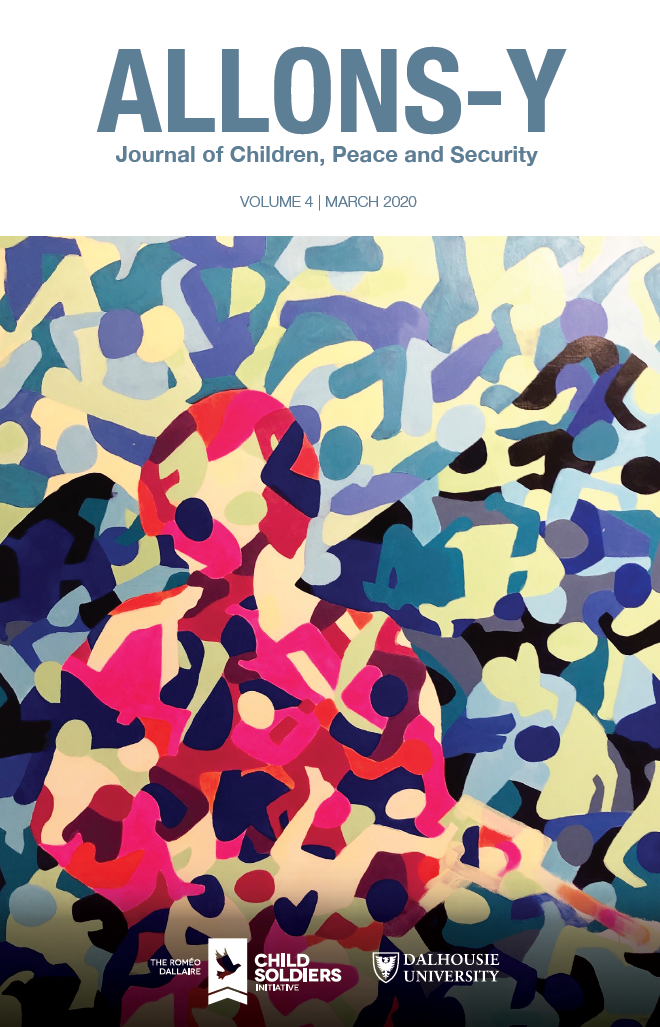Preface
Abstract
The ways in which child soldiers are used in modern conflicts has become ever more sophisticated and prominent, with shifting capabilities and a focus on generational warfare, compared to when I faced them during my command of the UNAMIR mission in Rwanda twenty-six years ago. To confront this challenges, we need to keep our focus on the fact that the recruitment and use of children as weapons of war is the worst thing that we can do to children. We need to focus on the significance of bringing an end to the era of the expectation that children should participate in conflict. If we want to stop the use of warfare, we need to start developing a worldview where adults do not think that children should be involved in war. There needs to be no wavering in our view that use of child soldiers is the worst aspect of modern war. Children are a weapons system that have no place on the battlefield or in the world‘s security apparatus. How is it possible that we are prepared to let children be used as weapons when we are horrified by the use of biological and nuclear weapons?The Vancouver Principles are a critical part of meeting this challenge, and as we enter a new decade they are the culmination of the work of the international community that began in 1996 with Graça Machel‘s report on the impact of armed conflict on children. The VPs build on all the work that we have been doing at the Dallaire Initiative, and the work of the international community expressed in the Optional Protocol, the Paris Principles, Security Council Resolutions, and the initiatives to protect children and civilians. The VPs provide a higher level of strategic guidance that link all of these efforts to rally states to take action, and the immense amount of work that went into creating the Implementation Guidance is absolutely critical to this endeavour. It is one thing to set up the Principles, but another to turn them into practice guidance on how they can be carried out. We now need to shift our focus onto turning the guidelines into training guidelines and the development of new capabilities for our forces. With this in mind, the articles in this issue of Allons-y provide an important complement to the Principles and the Implementation Guidance, and will be of great use to policymakers, academics, and security sector actors working on this issue.
In our work over the past several years, we have seen how hungry the security sector have been for something tangible to base their training on and upgrade and professionalize their forces on to confront the challenge posed by child soldiers. They see problem in peacekeeping of using force against children, and want to reduce casualties on their side and become more effective. With the Vancouver Principles we have taken the work of the Dallaire Initiative global, and we need to ensure that we use this tool effectively. To do so, we need to develop a central secretariat to help states take the Principles and the guidance and operationalize them into capabilities for their forces, and work with the UN to make sure that states have the required knowledge to do so. We also need to start thinking regionally to have more effective, coordinated, and rapid implementation of the Principles. The Dallaire Initiative has started this with our regional office for East Africa in Rwanda. Further work is needed to develop regional capabilities in Latin America, in the Middle East, and in South and East Asia. From our headquarters in Canada we can then assist with capacity building and strategy. With this direction, over the next decade we need to have this operational capability within every troop and police contributing country, and have every contingent going to UN missions qualified in this capability. This global engagement will aid in the reform and modernization of peacekeeping in order to end the use of children as weapons of war.
In an era where human rights came to the fore in the 1970s through the 2000s, with our abilities to document, communicate about, and punish international crimes, it has not resonated enough with people that using children for adult work is wrong, and the use of child soldiers is the worst form of it. You cannot just look at a child as someone in need of food and education, but as a future adult. If we nurture children in war, then we normalize war for the future. It is illogical to want to prevent and end war without addressing the role that child soldiers can play in perpetuating conflict. In a practical sense, we have not been able to connect this in people‘s heads, only in the law. To eliminate a major instrument of war, we have to make the use of child soldiers unthinkable.
Downloads
Additional Files
Published
2020-09-30
Issue
Section
Front Matter





